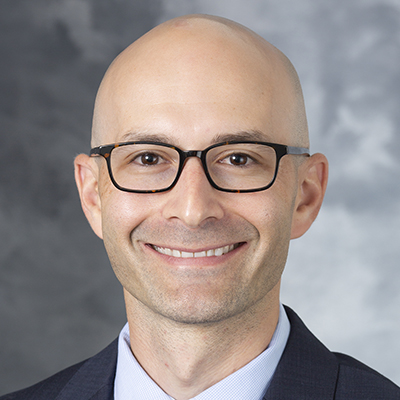David Harris, MD, assistant professor in the Division of Minimally Invasive Surgery, recently received a one-year pilot grant from Washington University’s Diabetes Research Center to explore potential treatments for Type 2 diabetes.
Type 2 diabetes is a complicated disease that affects over 33 million people in the United States and is a major cause of blindness, kidney failure, heart attacks, and strokes. It develops when the body becomes resistant to insulin, the hormone that helps us store and use sugar (or glucose) for energy. Insulin resistance increases the level of glucose in the bloodstream, which can damage the body.

In a study that will investigate ways to maintain internal glucose regulation, Dr. Harris will work with Snehal Chaudhari, PhD, a new colleague joining the University of Wisconsin-Madison Department of Biochemistry in fall 2023, and Rachana Bhimanwar, a pharmaceutical chemist at the Padmashree Dr. D.Y. Patil University in Mumbai, India.
The researchers are interested in a receptor in the human gut called TGR5. The chemicals in our body that attach to the TGR5 receptor can help improve our body’s ability to remain sensitive to insulin, ultimately helping regulate glucose levels. However, the TGR5 receptor hasn’t been studied much in diabetes research because it also affects other parts of the body. The research team aims to change this by studying how the chemicals that attach to the TGR5 receptor can be altered to improve insulin sensitivity, and whether these alterations cause side effects to other systems of the body. They will initially work on cells in the lab and then run tests in mice.
Ultimately, this pilot study could help identify a potential new target for the treatment of Type 2 diabetes.
“I am really looking forward to embarking on this collaborative effort to develop novel therapeutics for the treatment of diabetes,” Dr. Harris said. “This project is a testament to one of the major joys of working at UW Madison: the ease of cross campus collaborations.”